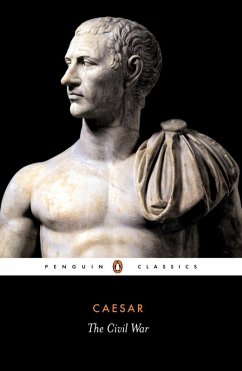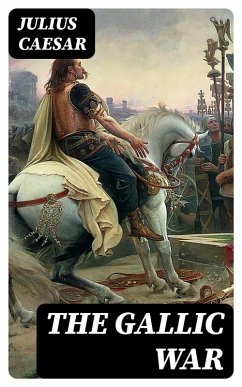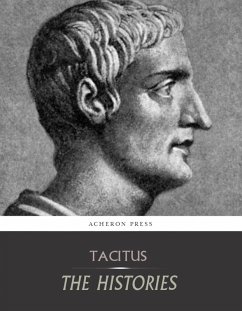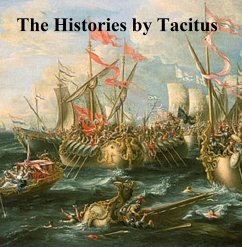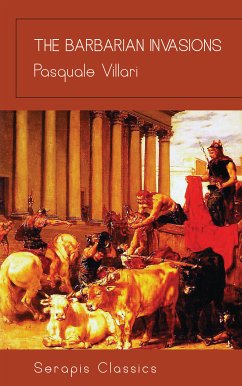
THE CIVIL WAR (Complete Edition) (eBook, ePUB)
Enriched edition. A Masterpiece of Roman Conflict and Power: Insights into Military Tactics and Political Maneuvering
Kommentar: Brackley, Kara / Redaktion: Good Press / Übersetzer: McDevitte, W. A.; Bohn, W. S.

PAYBACK Punkte
0 °P sammeln!
In "The Civil War (Complete Edition)," Julius Caesar provides a compelling first-hand account of the critical conflict that shaped the future of Rome. Written with precision and lucidity, the work employs a clear narrative style, mixing detailed military tactics with poignant reflections on leadership, loyalty, and the tumult of civil strife. As an essential document of Latin literature, this edition stands out for its unembellished prose and its strategic insights, simultaneously serving as a historical record and a literary masterpiece that captures the essence of power struggles in the late...
In "The Civil War (Complete Edition)," Julius Caesar provides a compelling first-hand account of the critical conflict that shaped the future of Rome. Written with precision and lucidity, the work employs a clear narrative style, mixing detailed military tactics with poignant reflections on leadership, loyalty, and the tumult of civil strife. As an essential document of Latin literature, this edition stands out for its unembellished prose and its strategic insights, simultaneously serving as a historical record and a literary masterpiece that captures the essence of power struggles in the late Roman Republic. Julius Caesar, a statesman and military general himself, drew upon his own experiences during the civil wars against Pompey the Great to pen this remarkable narrative. His background as a pivotal figure in Roman politics and warfare underscores the urgency with which he approached the events recounted in this book. Caesar's dual role as both participant and chronicler provides an invaluable perspective that transcends mere history, offering deeply personal insights into the motivations and complexities behind the leaders he faced. "The Civil War (Complete Edition)" is highly recommended for readers interested in understanding the intricate dynamics of power and conflict. It not only enriches the historical discourse surrounding this transformative era but also serves as a timeless reflection on the human condition amidst the chaos of civil warfare, making it essential reading for scholars and enthusiasts of Roman history alike. In this enriched edition, we have carefully created added value for your reading experience: - A succinct Introduction situates the work's timeless appeal and themes. - The Synopsis outlines the central plot, highlighting key developments without spoiling critical twists. - A detailed Historical Context immerses you in the era's events and influences that shaped the writing. - An Author Biography reveals milestones in the author's life, illuminating the personal insights behind the text. - A thorough Analysis dissects symbols, motifs, and character arcs to unearth underlying meanings. - Reflection questions prompt you to engage personally with the work's messages, connecting them to modern life. - Hand-picked Memorable Quotes shine a spotlight on moments of literary brilliance. - Interactive footnotes clarify unusual references, historical allusions, and archaic phrases for an effortless, more informed read.
Dieser Download kann aus rechtlichen Gründen nur mit Rechnungsadresse in A, B, BG, CY, CZ, D, DK, EW, E, FIN, F, GR, H, IRL, I, LT, L, LR, M, NL, PL, P, R, S, SLO, SK ausgeliefert werden.





